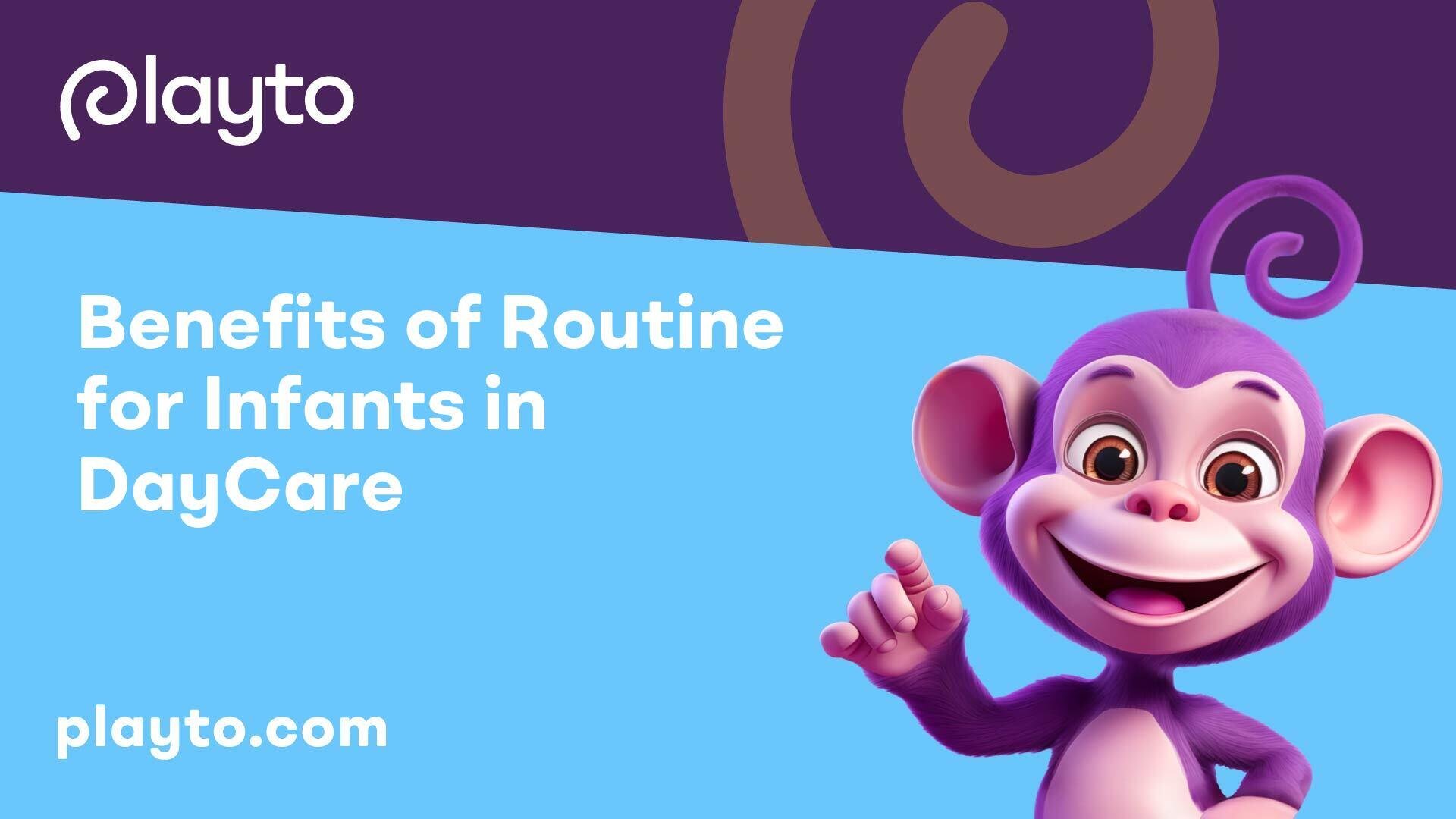
Importance of Routines in Daycare
Establishing stable and predictable routines in daycare settings is crucial for the overall well-being and development of infants. These routines not only provide a sense of security but also play a significant role in fostering social and emotional development among the young ones.
Establishing Stability and Security
According to Childcare Network, establishing routines early in a child’s life provides them with a sense of stability and security. For infants in daycare, this stability is particularly critical as it helps them feel safe and secure in a new environment. By following consistent routines for activities like feeding, napping, and playtime, infants are better able to predict and understand what comes next, creating a comforting and familiar atmosphere.
Impact on Social and Emotional Development
Routines in daycare have a profound impact on the social and emotional development of infants. As highlighted by Zero to Thrive, children benefit from predictable routines and accessible environments. Predictability, a key component of routines, allows infants to anticipate interactions and events, promoting a sense of safety and control. Through regular routines, infants develop a sense of trust in their caregivers and surroundings, which is essential for healthy social and emotional growth.
In daycare settings like KinderCare, inclusivity and support are emphasized, creating warm and welcoming classrooms for infants of all backgrounds. By incorporating consistent routines tailored to individual needs, daycare centers can nurture a sense of belonging and security in infants, laying a strong foundation for their social interactions and emotional well-being.
By recognizing and implementing the importance of routines in daycare for establishing stability, security, and supporting social and emotional development, infants can thrive in their early learning environments. This structured approach not only benefits the infants but also provides peace of mind to parents, knowing that their children are experiencing a nurturing and predictable daycare experience.

Benefits of Consistent Routines
Consistent routines play a crucial role in the development and well-being of infants in daycare, offering a structured and predictable environment that supports various aspects of their growth. Two key benefits of consistent routines for infants in daycare are the development of self-regulation skills and the promotion of social interaction and cooperation.
Self-Regulation Skills Development
Research indicates that routines are fundamental in fostering healthy social and emotional development in children, enabling them to develop essential self-regulation skills. By following consistent schedules and routines, infants learn to manage their emotions and behaviors, laying the foundation for lifelong emotional intelligence.
Well-established routines provide predictability and familiarity, allowing children to anchor their day around expected interactions with caregivers and the environment. This predictability empowers infants to adapt and anticipate daily activities, promoting a sense of security and stability.
Establishing routines in daycare settings is crucial for encouraging independence among infants. As children become familiar with what is expected of them, such as participating in organized activities or completing tasks like washing hands before meals, their confidence grows, promoting autonomy and self-assurance [2].
Social Interaction and Cooperation
Consistent routines in daycare settings play a vital role in promoting healthy social interactions and cooperation among infants. Structured activities embedded within daily routines encourage children to engage with their peers, fostering patience, empathy, and collaborative skills.
Through daily routines, infants learn valuable social skills such as sharing, listening, and following directions. Activities like group playtime or morning circles provide structured opportunities for infants to interact with others, develop positive relationships with caregivers, and build a sense of community and trust.
Moreover, offering children choices within the boundaries of routines helps reduce stress and enhance their confidence during transitions, fostering a positive attitude towards change.
In conclusion, consistent routines in daycare not only contribute to the development of self-regulation skills but also enhance social interaction and cooperation among infants, laying a solid foundation for their overall growth and well-being.

Transitioning to Daycare Routines
Adjusting to daycare routines can be a significant transition for infants, impacting their sleep patterns and overall well-being. Ensuring a smooth adjustment involves understanding the challenges of adapting to new environments and nurturing predictable routines for infants in daycare.
Adjusting to New Environments
Starting daycare can be an overwhelming experience for infants as they navigate unfamiliar surroundings and faces. It is common for babies to experience sleep regression initially, particularly when it comes to napping in a different environment. This adjustment period may lead to overtiredness and disrupted night sleep as infants acclimate to their new daycare setting. Parents and caregivers play a vital role in supporting infants through this transition by offering comfort, reassurance, and a consistent routine at home that complements their daycare schedule.
To aid in the adjustment process, daycare centers like KinderCare prioritize safe and supervised sleeping environments for infants. Utilizing see-thru cribs during nap time ensures that infants can rest peacefully while being monitored by caregivers. Encouraging open communication between parents and daycare providers is essential to address any concerns and ensure a smooth transition for infants adjusting to new environments.
Nurturing Predictable Environments
Consistency and predictability are key elements in helping infants acclimate to daycare routines. Infants thrive in environments where routines are established, providing them with a sense of security and stability. While daycare schedules may differ from home routines, maintaining certain consistencies, such as nap times and feeding schedules, can help infants feel more at ease.
Flexibility is also crucial when nurturing predictable environments for infants in daycare. KinderCare acknowledges the importance of accommodating specific routines requested by families to meet individual preferences and needs. By incorporating elements familiar to infants from their home environment, daycare providers can create a nurturing and supportive atmosphere that eases the transition process.
By focusing on adjusting to new environments and nurturing predictable routines, caregivers can support infants in daycare through this significant transition period. Patience, understanding, and a collaborative effort between parents and daycare providers are essential to ensure that infants feel secure, comforted, and well cared for as they adapt to their new daycare setting.

Supporting Children through Transitions
When children transition to preschool, parental involvement plays a crucial role in facilitating a smooth adjustment process. Actively engaging parents during the preschool introduction has been shown to positively impact family-teacher relationships, leading to better attachment development and socioemotional adjustment for children.
Parental Involvement in Preschool Introduction
Parents are essential partners in helping their children navigate the transition to preschool. By actively participating in the introduction process, parents not only gain a deeper understanding of the preschool environment but also provide crucial emotional support for their children. This involvement helps children feel emotionally secure and aids in their overall adjustment to the new setting. Establishing strong communication channels between parents and teachers fosters a sense of collaboration and partnership in supporting the child's transition.
Organizational Flexibility for Successful Transitions
Preschool introductions can vary in structural aspects, such as the length of the introduction period, timing of the first child-parent separation, and the involvement of children and teachers. Different models of engagement, particularly a "parent-active" approach, have been associated with positive outcomes in family-teacher relationship formation. This approach emphasizes active participation from parents in various aspects of the transition, promoting a sense of shared responsibility in supporting the child's adjustment.
Adopting an organizational approach that allows for flexibility and tailoring the transition process to meet the individual needs of children and families can enhance the overall success of the preschool transition. Recognizing and accommodating the diverse backgrounds and experiences of families can create a welcoming and inclusive environment that supports children in feeling secure and valued as they navigate this important developmental milestone.
By prioritizing parental involvement and fostering organizational flexibility, daycare centers can create a supportive and nurturing environment that eases the transition for children entering preschool. Through collaborative efforts between parents, teachers, and daycare staff, children can embark on this new journey with confidence and resilience, setting the stage for a positive and enriching preschool experience.

Implementing Daily Routines
In a daycare setting, implementing daily routines plays a crucial role in providing structure and organization for infants. By incorporating adaptable activities for routine reinforcement and ensuring that children feel included and supported, caregivers can create a nurturing environment that promotes development and well-being.
Adaptable Activities for Routine Reinforcement
Effective routines in childcare settings should be adaptable to accommodate the diverse needs of all children, ensuring every child feels included and supported through personalized activities and assistance during transitions [3]. By incorporating a variety of activities that cater to different developmental stages and interests, caregivers can engage infants in meaningful experiences that enhance their learning and social interaction skills.
Implementing activities such as morning check-ins, story time, clean-up songs, daily weather checks, themed movement breaks, and reflection time can reinforce routines in the daycare environment. These activities not only promote a sense of consistency and predictability for infants but also stimulate their cognitive, motor, and social development [2].
Ensuring Children Feel Included and Supported
When designing daily routines in daycare, it is essential to create an inclusive environment where every child feels valued and supported. By incorporating activities that encourage participation from all infants, caregivers can foster a sense of belonging and promote positive social interactions among peers.
Caregivers should strive to provide individualized attention and support to each child, acknowledging their unique strengths and needs. By creating a welcoming and supportive atmosphere, infants are more likely to feel comfortable, secure, and confident in their daycare environment.
It is through these intentional acts of inclusivity and support that infants in daycare develop a sense of belonging and build essential social skills. By prioritizing the well-being and emotional needs of each child, caregivers can create a nurturing and empowering environment where all infants can thrive and grow.
Effects of Predictable Routines
Consistency and predictability are not just beneficial for adults; children, especially infants in daycare, thrive on routine. Establishing routines early in a child’s life provides them with a sense of stability and security, laying the foundation for healthy development in various realms of their lives.
Reducing Anxiety and Behavioral Issues
Predictable routines play a significant role in reducing anxiety and behavioral issues in infants. By following a consistent schedule at daycare, children develop a sense of security and familiarity, which in turn helps them feel more at ease and less anxious. Research indicates that routines have a profound impact on social and emotional development, helping children develop self-regulation skills essential for managing emotions and behaviors effectively.
Fostering Independence and Cognitive Development
Well-established routines in early childhood education are instrumental in fostering independence and cognitive development. As children learn what is expected of them and what activities follow a particular sequence, they gain a sense of confidence and autonomy. Structured activities within routines, such as washing hands before snack time or cleaning up after playtime, help children understand responsibilities and take ownership of their actions, ultimately building a foundation for independence. These routine activities also contribute to cognitive development by reinforcing patterns and sequences, which are essential cognitive skills for young minds.
In the daycare environment, the predictability of routines not only supports individual emotional well-being but also creates a harmonious atmosphere that benefits the collective group. Interactions guided by the predictable nature of routines make social expectations clear, fostering positive social development among peers.
Parents play a crucial role in supporting their child's development through routines. Providing consistent, focused attention and interaction helps children feel secure and valued. These moments of connection are essential for children's overall well-being and emotional development. By understanding the profound effects of predictable routines on anxiety reduction, behavioral regulation, independence, and cognitive growth, daycare providers and parents can work together to create environments that nurture and support the young minds in their care.
Rituals within Routines
Rituals, a special form of routine, play a vital role in daycare settings, offering additional significance to predictable family experiences. In this section, we will explore how rituals within routines can help in building family identity and connection, as well as in coping with stress and trauma.
Building Family Identity and Connection
Rituals within routines contribute to the establishment of a strong family identity and foster connections among family members. These rituals create shared experiences and memories that bind family members together, creating a sense of belonging and unity. According to Zero to Thrive, rituals such as Taco Tuesdays or Sunday church services can be powerful tools in promoting family connections and emotional well-being.
Family rituals often involve activities that occur at the same time and place, involve all family members, and foster positive emotional connections. These structured and repetitive actions provide a sense of stability and predictability for children, which can be particularly comforting during times of change or uncertainty. By engaging in rituals, families create a unique identity and establish traditions that pass down from generation to generation, strengthening the family bond.
Coping with Stress and Trauma
Rituals within routines serve as a source of comfort and support for children, helping them cope with stress and trauma. The emotional significance attached to rituals leaves an "emotional residue" that can be particularly beneficial during challenging times. Engaging in familiar rituals can provide a sense of normalcy and security, offering a safe haven for children to express their emotions and seek solace.
During periods of stress or trauma, the presence of rituals can act as a source of resilience, helping children navigate difficult emotions and experiences. Revisiting rituals from previous generations can be especially powerful, as it connects children to their roots and cultural heritage, instilling a sense of pride and belonging.
By integrating meaningful rituals within daily routines, families can create a protective shield against the negative effects of stress and trauma on mental health. These rituals not only enhance the family's cohesion and unity but also provide a foundation of stability and support for children as they navigate the ups and downs of life.
Adaptations in Times of Crisis
During challenging times, such as the current crisis, it becomes even more crucial to focus on maintaining stability through routines and promoting mental health and well-being. Flexibility and adaptability in routines are key to supporting infants and children through uncertainties.
Maintaining Stability Through Routines
In times of crisis, children still require structure and predictability to feel secure and safe. Parents can adapt their children's routines by incorporating significant routine features, such as creating schedules or morning meetings to establish general timeframes for activities. Consistent meal times and family gatherings without distractions serve as anchoring points for young children, providing a sense of stability amidst uncertainty. It's essential for parents to maintain consistent household rules to offer a sense of security and normalcy, even if other expectations are temporarily adjusted.
Promoting Mental Health and Well-Being
Children rely on stable and predictable environments for their mental well-being. Transparency in managing parental worries and adopting healthy coping strategies can positively impact children's mental health during times of crisis. Reinforcing existing family rituals or creating new ones can help buffer the effects of stress and trauma on mental health [1].
Offering children choices within predefined boundaries can be beneficial in reducing stress and building confidence as they navigate changes during challenging times. Visual aids and timers can also aid children in understanding the concept of time and managing transitions effectively, ultimately reducing stress and enhancing confidence.
By maintaining stability through routines and prioritizing mental health and well-being, parents can provide infants and children with the necessary support to navigate through crises while fostering resilience and a sense of security.
References
[1]: https://zerotothrive.org/routines-for-kids/
[2]: https://www.cceionline.com/the-benefits-of-routines-in-early-childhood-education/
[3]: https://childcarenetwork.com/the-importance-of-routine-for-children-creating-a-consistent-schedule/
[4]: https://bbmacademy.com/blog/supporting-young-children-through-new-experiences/
[5]: https://takingcarababies.com/
